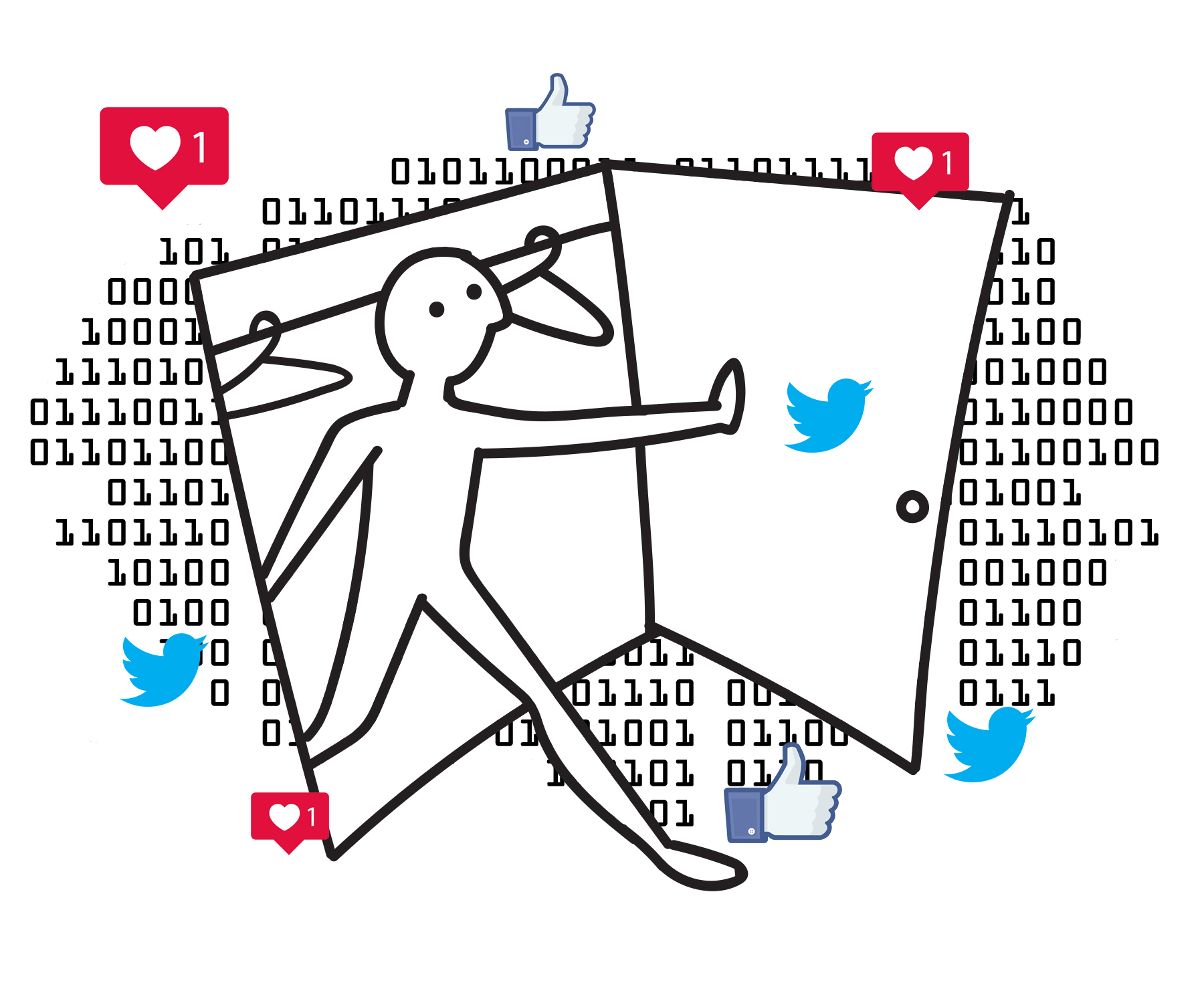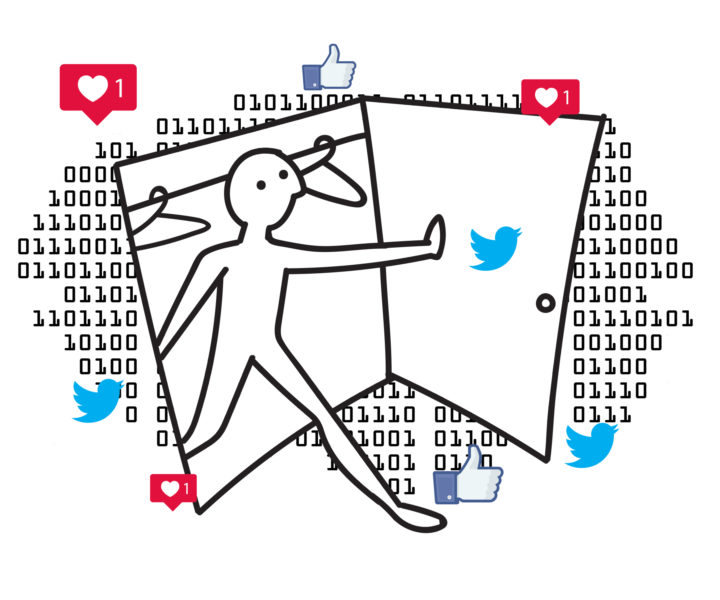

Coming out is not a single player performance. Rather, it is a multiplayer symphony of support from a community that embraces the uniqueness of every individual. It is the ground zero for “this is me,” and requires a progressive mindset willing to believe in the development of each person along with their respective parts.
For years, coming out to family and friends involved sitting down and having a talk. However, since the advent of the internet, social media has linked the world and its inhabitants on an unprecedented level of connectivity, giving many LGBTQ individuals access to different group chats, pages and online communities that affirm their identities and support them in coming out.
Hashtags like #ComingOut on sites such as Instagram, Twitter and Facebook are being used at a record high. According to a study by PopSugar, there were only 1001 coming out posts on Instagram in October of 2013 compared to 12,791 posts in October 2017—over a 1200 percent increase in just four years.
“Ultimately, picking people who are going to be supportive is important”
Coming out is a very emotional and di cult experience for most individuals, regardless of the method they choose.
“I think it’s a courageous thing to come out,” said English teacher Wiley Clothier. “I think ultimately, picking people who are going to be supportive first is important because you develop a team of allies right away. If someone is thinking about telling their parents first, but they’re really worried their parents are going to reject them, I think it might be better to tell close friends who they know will be there for them.”
Senior James Veizades chose to come out on YouTube and Instagram during the summer of 2018 after being encouraged by other LGBTQ friends.
“Over the summer, I was part of an art program and I met a lot of really amazing,supportive people,” Veizades said. “That experience gave me a lot of confidence and a lot of reassurance that everything would be fine if I came out because I met all these people … [who] made me comfortable enough to feel like it was okay to come out to other people.”
The next step in this process is deciding who to tell and how to tell them. Clothier, who came out as lesbian before the development of social media, chose to come out to friends and family in person.
“I just had face to face conversations with the people who I wanted to tell. Starting with my mom … we just literally talked about it,” Clothier said. [Coming out] face to face is definitely more personal …But you also have to do it several times, because you have to tell every single person who you want to tell. ”
Though Clothier came out in person, she acknowledges the benefits of coming our online.
“On social media, you just press send or post and everybody knows in one fell swoop,” Clothier said.
Veizades appreciated the privacy and simplicity coming out on social media allowed him.
“I have a really hard time telling people straight up and looking at someone face to face and telling them such a big part of me,” said Veizades, who also hoped to avoid constantly having to tell strangers he had transitioned. “I could just link [the video] on my Instagram and everyone at school could see it so I didn’t have to go through the confusion afterwards.”
“I was afraid I would lose friends. I was afraid some of the people wouldn’t want to interact with me“
Social media has eased the coming out process by eliminating the potential for confusion and gossip along with allowing individuals to reflect and think about how to present themselves. Despite the many different outlets available today, coming out is still an emotionally tolling experience for many individuals in the queer community.
“I was afraid I would lose friends. I was afraid some of the people wouldn’t want to interact with me anymore,” Clothier said. “I was worried a little bit about telling people who I’d known for a really long time, and I also thought they might be mad that I had not told them sooner.”
The process of scripting, filming and editing his coming out video gave Veizades the opportunity to thoroughly consider how he wanted to come out.
“I thought maybe I could make a video that would really give me the time and resources to say exactly what I wanted to say,” Veizades said.
While many LGBTQ individuals choose to come out in person, over the phone or via social media, there are still many people who are outed and are prevented from coming out themselves, for better or for worse.
“I grew up in a really, extremely Catholic family, and the Catholic Church doesn’t necessarily agree with the LGBT community,” said senior Grace Simenc, who came out after her parents discovered a text she had sent to a friend, “I was afraid that maybe my parents wouldn’t accept that part of me.”
“They initially refused to accept it as who I am, and [tried to] convince me that it was something that I would grow out of,” Simenc said. “A few months later, they did come to accept it and they promised to love and support me regardless of my sexual orientation.”
Regardless of the methodology, be it a face to face talk or an online announcement, these individuals were mostly accepted by their peers and loved ones.
“My mom’s first comment to me was, I just want you to be happy. And that meant a lot to me. So she didn’t judge me and she didn’t reject me,” Clothier said. “I think that ultimately that’s what it comes down to, just being happy for another person’s happiness.”




